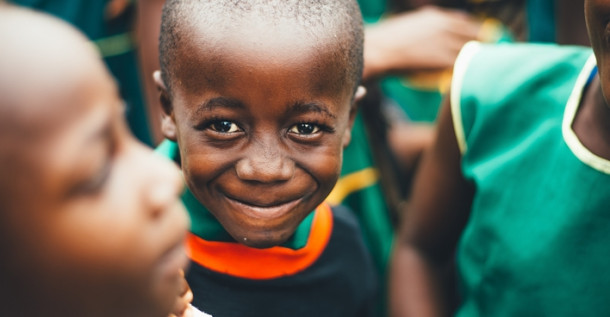News
UNESCO’s Global Education Coalition celebrates Africa Day

On the occasion of Africa Day 2022, UNESCO gathered members of the Global Education Coalition to reflect on its contributions to strengthen the continent’s education systems following COVID-19.
Over 100 members of the Coalition - including representative from governments, multilateral organizations, private sector, youth networks, NGOs and educators - joined the virtual forum, Transforming Education in Africa: The Global Education Coalition, on 25 May.
Opening the event, Stefania Giannini, UNESCO’s Assistant Director-General for Education, praised the Coalition “as a force for public-private collaboration” and for its efforts to ensure learning continuity and drive the digital transformation in an inclusive manner. She also noted that the pandemic had accelerated transformation, experimentation and innovation across the African region.
The Coalition currently has over 66 projects in 39 African countries. In celebration of Africa Day, UNESCO published a brochure - Transforming education in Africa through innovation: The Global Education Coalition leading in action - highlighting some of these innovations and actions. In West Africa, for example, over 20,000 teachers are enrolled in Imagine Learning, a platform providing training modules on ICT skills, in five anglophone countries. Meanwhile, the Imaginécole offering access to online learning contents aligned with national curricula for students and teachers in 10 francophone countries in West and Central Africa.
The event included roundtable discussions on the five Action Tracks of the Transforming Education Summit: inclusive, equitable, safe and healthy schools; learning and skills for life, work, and sustainable development; teachers, teaching, and the teaching profession; digital learning and transformation, and financing of education.
Speaking on the roundtable for Action Track four, Alfie Hamid, Global Partnerships Manager at CISCO, spoke of the advantages of digital learning, including agile learning content, simulation tools and no limitations on class sizes. He also stressed the importance of adapting learning environments and investing in Africa, which will be home to 42% of the world’s youth and 75% of those under the age of 35 by 2030.
Other speaker recommendations from the roundtable discussions included:
- Investment in training, including informal training and lifelong learning, to equip learners with the skills to be competitive in a world that is impacted by fast-changing technology. Supporting learners to build skills for self-management, self-confidence and resilience should also be a priority.
- Increased support for teachers, including improved working conditions, initial and on-the-job training opportunities, and experimental models for educator qualifications.
- Ensure that countries are putting in place multisectoral policies for action, meaning that the education section is not operating in a silo but working with ministries of health, social protection, agriculture and many other sectors.
- Provide an integrated package of services including school meals, WASH, and education in menstrual health and hygiene, nutrition, and sexual and reproductive health.
- Balance project implementation with the capacity to test and learn new processes.
According to Firmin Matoko, Assistant Director-General for Priority Africa and External Relations at UNESCO, while Africa is not on track to achieve SDG4, many lessons can be learned from the work of the Coalition which can accelerate recovery and progress. “We need an ecosystem that counters every form of discrimination and promotes gender equality in access and subject choices - an ecosystem that puts learners at the center and values teachers.”
The Transforming Education Summit will provide a roadmap, he said, but networks, such as the Global Education Coalition, will be important in mobilizing support and action from a range of non-traditional stakeholders. Without “extensive cooperation between partners, progress towards SDG4 cannot be achieved in Africa, Matoko concluded.
- More on UNESCO’s the Global Education Coalition

